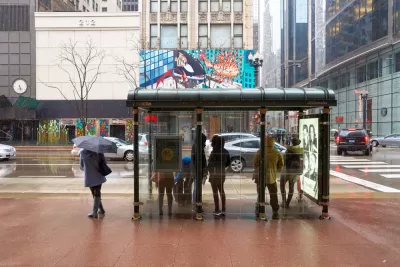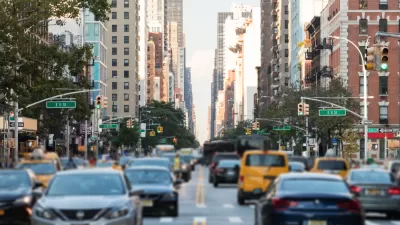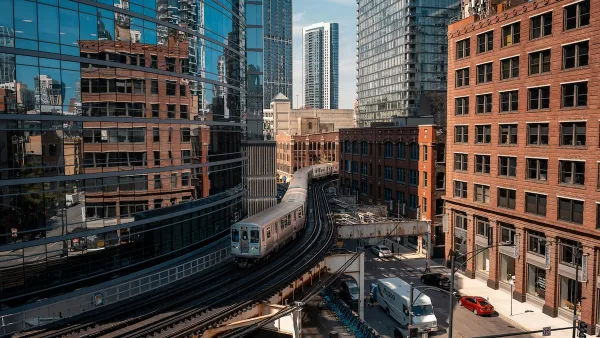A combination of road pricing and adjustments to transit service could let the CTA lower fares to ‘next to nothing.’

A new analysis of Chicago’s transit system “finds that blending charges for drivers with adjustments to transit fares and schedules offers a promising path” for shifting away from private vehicle use and funding effective public transit.
“The researchers considered three transportation policies: adjusting bus and train fares, changing bus and train frequencies, and introducing a fee on cars driving into the city.” They then modeled various scenarios, from one that would give the CTA unlimited funding to ‘more realistic’ options that would adjust road pricing or transit service.
The best option, according to the team, would be a combination of road pricing and changes to transit frequencies and fares. “If authorities pursue both policies simultaneously, the researchers find, the revenue collected from charging commuters 30 cents a kilometer could subsidize cheaper, more convenient public transit. The CTA could slash fares to next to nothing: 16 cents for a bus fare compared with $2.25 today and 26 cents for the train, down from $2.50. Excess revenue from road fees (any collected beyond the amount required to finance the CTA at this level) could go back to residents in the form of rebates, lessening the budgetary strain on middle-income commuters.”
FULL STORY: Charge Drivers to Improve Public Transit

Planetizen Federal Action Tracker
A weekly monitor of how Trump’s orders and actions are impacting planners and planning in America.

Maui's Vacation Rental Debate Turns Ugly
Verbal attacks, misinformation campaigns and fistfights plague a high-stakes debate to convert thousands of vacation rentals into long-term housing.

San Francisco Suspends Traffic Calming Amidst Record Deaths
Citing “a challenging fiscal landscape,” the city will cease the program on the heels of 42 traffic deaths, including 24 pedestrians.

Amtrak Rolls Out New Orleans to Alabama “Mardi Gras” Train
The new service will operate morning and evening departures between Mobile and New Orleans.

The Subversive Car-Free Guide to Trump's Great American Road Trip
Car-free ways to access Chicagoland’s best tourist attractions.

San Antonio and Austin are Fusing Into one Massive Megaregion
The region spanning the two central Texas cities is growing fast, posing challenges for local infrastructure and water supplies.
Urban Design for Planners 1: Software Tools
This six-course series explores essential urban design concepts using open source software and equips planners with the tools they need to participate fully in the urban design process.
Planning for Universal Design
Learn the tools for implementing Universal Design in planning regulations.
Heyer Gruel & Associates PA
JM Goldson LLC
Custer County Colorado
City of Camden Redevelopment Agency
City of Astoria
Transportation Research & Education Center (TREC) at Portland State University
Jefferson Parish Government
Camden Redevelopment Agency
City of Claremont





























